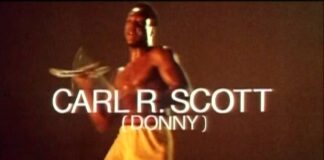Filmmakers and other creative rights holders have had a few persistent complaints about distributors in general and aggregators* in particular. Distribber was conceived as a solution to these complaints.
*Aggregator is the term used for a company that acts as a gatekeeper between a rights holder and a retail platform, such as iTunes, Netflix, Hulu or Cable VOD operators like Comcast, Time Warner, etc.
Distribber explains that the complaints surrounded 3 specific pain points:
COMPLAINT ONE
ETERNAL REVENUE-SHARE FOR FINITE SERVICE
Aggregators (other than Distribber) work on a revenue-share basis, meaning that they make money by keeping between 15% and 50% of your revenue that they collect from the retail platforms on your behalf. They take this portion of revenue for the entire term of your deal with them. The complaint from filmmakers was that while aggregators take this money “forever,” they didn’t seem to be working forever. To many, it seemed that aggregators placed their film on the platforms and then moved on.
This situation was even more frustrating for larger rights holders — production companies, sales reps, etc. — who controlled the rights to several (often dozens) of titles, and who engaged in significant marketing and grassroots outreach but lacked access to iTunes, except through revenue share entities. The shared-revenue structure has continued to frustrate these larger companies as they have been the core demand-drivers.
Now, in defense of aggregators, encoding a film, ushering it through Quality Control “QC” and having the access to place it on iTunes or Netflix or Hulu or Cable VOD or anywhere else is indeed a valuable service — and often a time-consuming one.
However, it seemed that one could put a fair price on that service that accounted for the work and value of relationships, and offer it to filmmakers cleanly, without the burden of a revenue-share. This would enable a filmmaker, production company or other rights holder to know their cash outflow in advance, and enjoy 100% of the benefit of their film’s success. So, Distribber adopted a flat-fee-for-service model.
COMPLAINT TWO
LARGE DEDUCTED EXPENSES, OFTEN FOR NON-TRACEABLE MARKETING FEES
Filmmakers complained that distributors and aggregators deducted expenses that seemed unreasonable, like $4000 for encoding, or an array of costs for marketing services that the filmmaker wasn’t sure had actually been done.
Here, the opportunity was again to charge a fair price, once. So, Distribber adopted a fair price. The $1595 one-time fee for iTunes placement was less than some rev-share companies charged for the encoding alone, and after only 160 sales at $9.99 on iTunes, rights holders have been entirely in profit.
Without putting too fine a point on it, it bears emphasizing: after 160 iTunes sales at $9.99, a rights holder is in profit for the rest of the film’s life on iTunes. Going forward, Distribber charges $150 per year for account access, collection and sales stats.
The best evidence that we were on the right track came when the Age of Stupid production team chose to use Distribber — they have been incredibly successful trailblazers in the hybrid distribution movement, and their endorsement told us that our service is providing its intended benefits for its ideal users.
To compare Distribber’s model with revenue-share models, consider the illustration above. At 1000 iTunes sales (retail price $9.99), rights holders give up 174% more money under a 15% rev-share than they pay to Distribber ($3,550 compared to $1595). Under a 25% rev-share, rights holders pay 228% more ($4,250). At 10,000 sales, Distribber’s one-time fee doesn’t change, but a 17% rev-share deal ($15,000) now costs nearly ten times the Distribber fee ($1,595), while a 25% rev-share deal costs over fifteen times more ($20,000). Obviously, at 20,000 sales, the disparity only increases.
Looking at revenue, with Distribber’s flat fee, at 1000 iTunes sales, rights holders are paid 65% more than they would be with a 15% rev-share deal ($5,705 vs. $3,450), and they’re paid more than twice what they’d get from a 25% deal ($5,626 vs. $2,750). At 10,000 sales, Distribber clients keep $11,705 more than they would under a 15% rev-share, and $18,705 more than they would under a 25% rev-share.
COMPLAINT THREE
LATE PAYMENTS, AND SOMETIMES NO PAYMENT
Filmmakers complained that even after resigning themselves to a rev-share deal, and agreeing to the small payout left after expenses and revenue share deductions, they had to chase distributors and aggregators for reports and checks, and sometimes with none being sent at all.
So, Distribber has decided to remove the creative accounting found with most traditional distributors. Sales reports that detail collection stats by each platform are available upon request. You choose how you want to receive your monies – either by check or PayPal payment. And you are paid at least every three months. Keeping things transparent has removed a major, time-consuming headache from our client’s lives for $225 a year.
NEXT: MORE PAIN, MORE ANSWERS
Even a casual follower of the distribution business knows that there are plenty of areas it can be improved, and in plenty of ways. Distribber is continuing to actively developing new methods and models to serve rights holders across a variety of platforms, from internet to cable to mobile.
With the proliferation of tools like WordPress, Facebook, Twitter and all the plugins and apps that support those services, it’s more possible than ever for innovative companies, teams — or even individuals — to disrupt old marketing models and connect with audiences. Filmmaker/marketers like Gary Hustwit, Lance Weiler, Tiffany Shlain and others have shown the way to create demand via their own efforts and investment. Peter Broderick is shepherding rights holders through a hybrid strategy that teaches careful allocation of specific rights to companies that are highly specialized, with the goal of maximizing the revenue a filmmaker keeps.
The key thing to understand about the Aggregator Distribber is that it’s a powerful tool to help enterprising rights holders keep the most of their own money. The more skilled you are at connecting with audience, the more buzz that you’ve built, the better Distribber’s deal works for you.
As an aggregator, Distribber is one of only a few preferred companies from whom major platforms (like iTunes, Hulu, Amazon, VuDu, Netflix, FandangoNow and others) acquire content. In addition to providing access, their service includes encoding, quality control and delivery. Pay only for the distribution services you want. Then enjoy 100% of the benefit of your film’s success.
Don’t hesitate to call, email, or go by their office with any questions you have. They are always happy to help.
6330 San Vicente Blvd
Suite 520
Los Angeles, CA 90048
Call: 310-756-0847
Email: support@distribber.com




